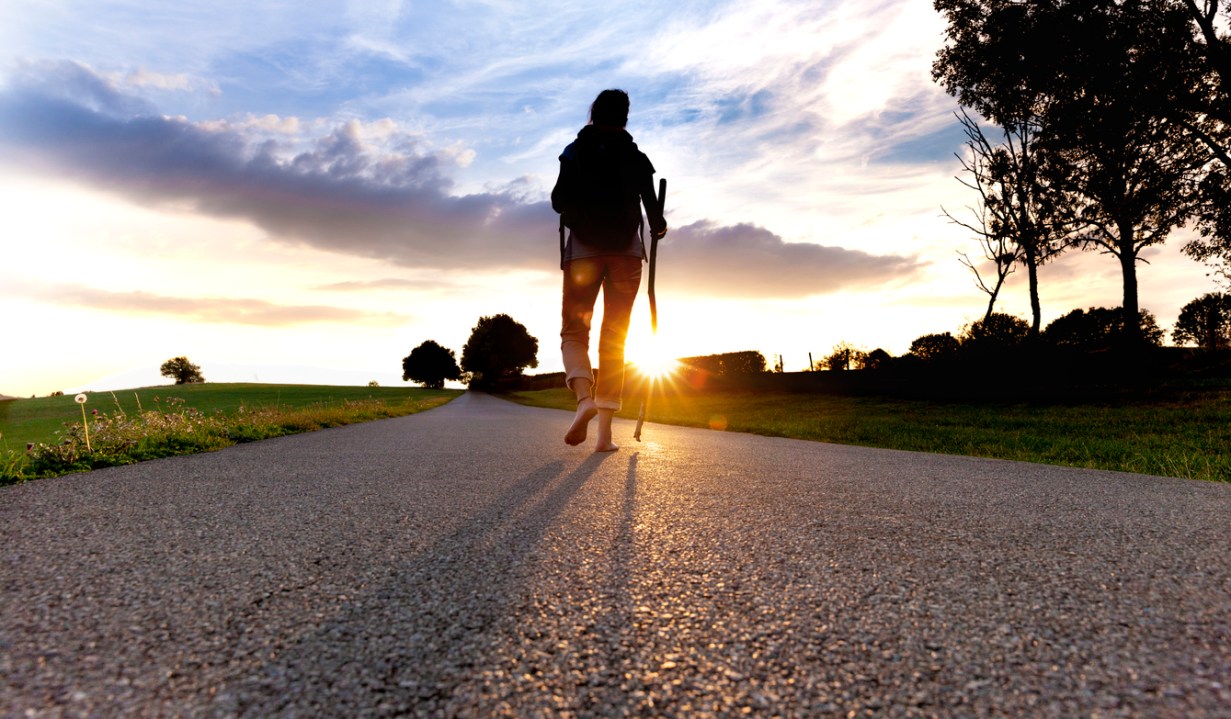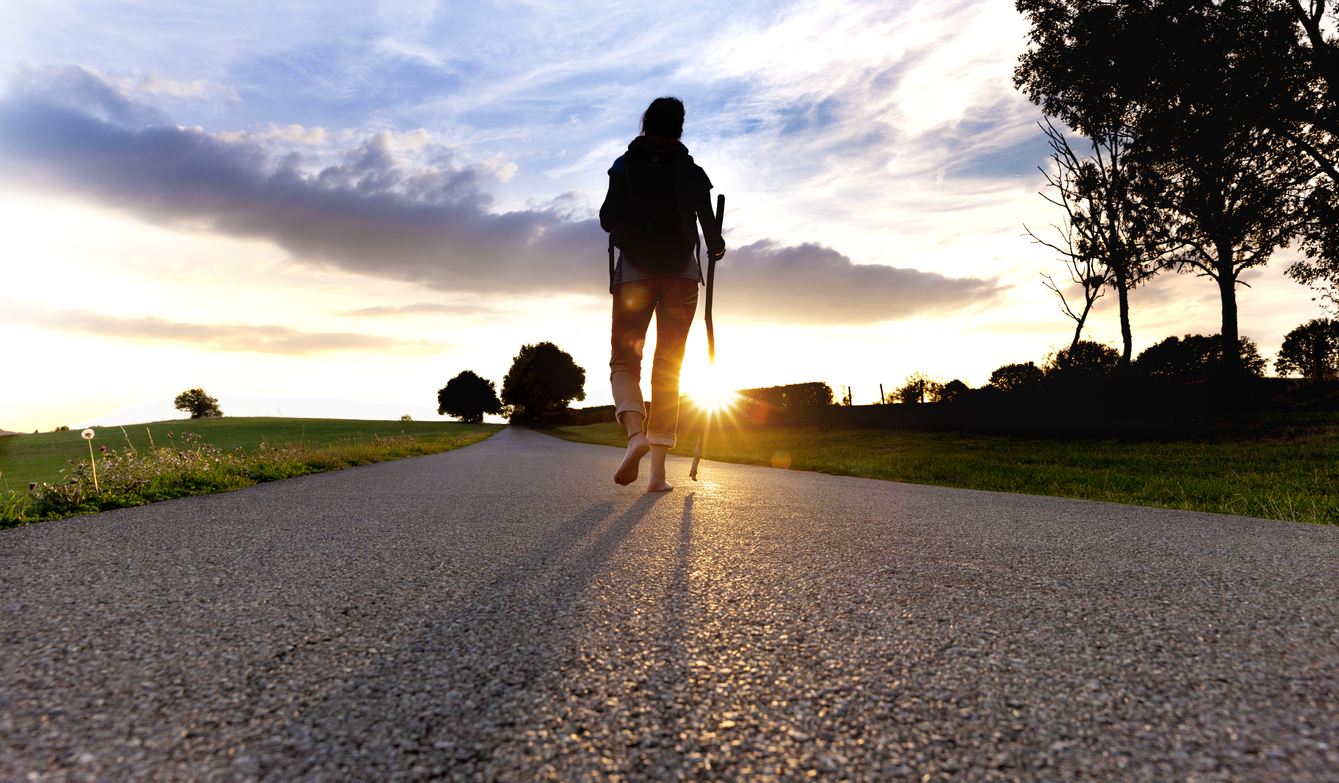At 3 a.m, with sleepless hours slipping by as storms besiege my tent, it’s easy to ask: why? Why swap the security of a home for a pilgrimage on foot with no itinerary beyond a smudged path on a 14th century map? And no comforts beyond those carried on my back or offered by strangers? Back on the bright path next morning, though, the question answers itself. The way is its own reward: the land resonates; the past speaks; my soul sings – and so do I.
But my departure had not only been inspired by the pull of the open road. There were push factors, too. The economic attrition of the past two years had caught up with me, as it has with many. A bad bout of Covid; the apparent end of a cherished relationship; the loss of a pilgrimage charity which I had started. Like the folk-song hero in Spencer the Rover, I felt ‘so reduced, which caused great confusion’. And so – making a virtue of a necessity – I packed my belongings into a container and sought solace on the footpath.
Embracing uncertainty when your life hits a crossroad may sound counterintuitive. But pilgrimage is a very traditional way to restore wellbeing. St Thomas Becket of Canterbury – my destination – was called ‘the best doctor for the worthy sick’. The words ‘holy’, ‘healthy’ and ‘holistic’ all share the same root in Old English.
What changed to make this ancient travelling balm into an anachronism? I blame the two Henrys: Henry VIII and Henry T. Ford. The first aggressively dissolved England’s pilgrimage infrastructure and created vagrancy laws, the taboo of which lingers to this day; while the second combusted miles into minutes.
What changed to make this ancient travelling balm into an anachronism? I blame the two Henrys: Henry VIII and Henry T. Ford
Pilgrimage has been part of my life for 15 years, ever since a seven-month walk from Kent to Cornwall revealed the extraordinary power of slow travel. Self-discovery, new friendships, a closer alliance with nature and freedom to engage with spirituality: all were waiting on the path. Plus a wellspring of traditional songs to draw from along the way.
Since then, I rediscovered the forgotten coastal route from Southampton to Canterbury – relaunching it as the Old Way. I started a charity to promote pilgrimage, and a website to share my vision for a healthy itinerant life.
My goal is to revive the English traditions of pilgrimage. Medieval pilgrims would carry a gift to present at their destination. Reciprocity – to both give and receive – remains vital to the spiritual architecture of pilgrimage. My votive offerings are songs. They are blissfully light, and never run out. I offer songs to anyone wanting to listen – and to anything, too. Each village church; each natural spring and river; each great tree – all have received a song of thanksgiving. I often despatch the recordings on to social media, hoping they might land where else they’re needed. And a night in a stranger’s house has been paid for similarly. The more I give them away, the closer they become to me.
This time, I am carrying another commodity essential to human life – water. Deep in urban Southampton, the city’s ancient holy well – the Colwell – still flows faithfully. I drew a flask from it to drip into each waterway en route to Canterbury. There I will refill my flask from the – equally forgotten – healing well of St Thomas and do the same on the return.
The apogee of pilgrimage may be a shrine but its ultimate destination was always home itself. And so, for the first time, I am walking the Old Way both ways. Places still seem new when approached for the second time, with each day retaining its customary denseness. Research has shown that it is not ageing but rather the deadening accretion of routine that makes time pass quicker as life goes on. With my days still enriched by uncertainty – including core considerations about sleep and sustenance – time slows right down. A friend who joined me for a week said it felt like a month. Pilgrimage really does expand your time on Earth.
But the greatest reward is something even rarer in our modern lives: trust. I felt this lack most keenly as I set off. Beset by doubts, I only just made it out. Now my meagre deposit of trust has compounded into a wealth of faith and fearlessness. Households great and humble have opened their doors to me as a pilgrim. Strangers have become friends. Trust is better than gold: the more you spend it, the more you receive.
I hope that others facing uncertainty might also take up the peregrine staff and launch themselves into the arms of England. Her hospitality is warm, her holy places are bright and her ways are open. We all face problems in these unsteady times – but, as St Augustine said, we may solve by walking.







Comments